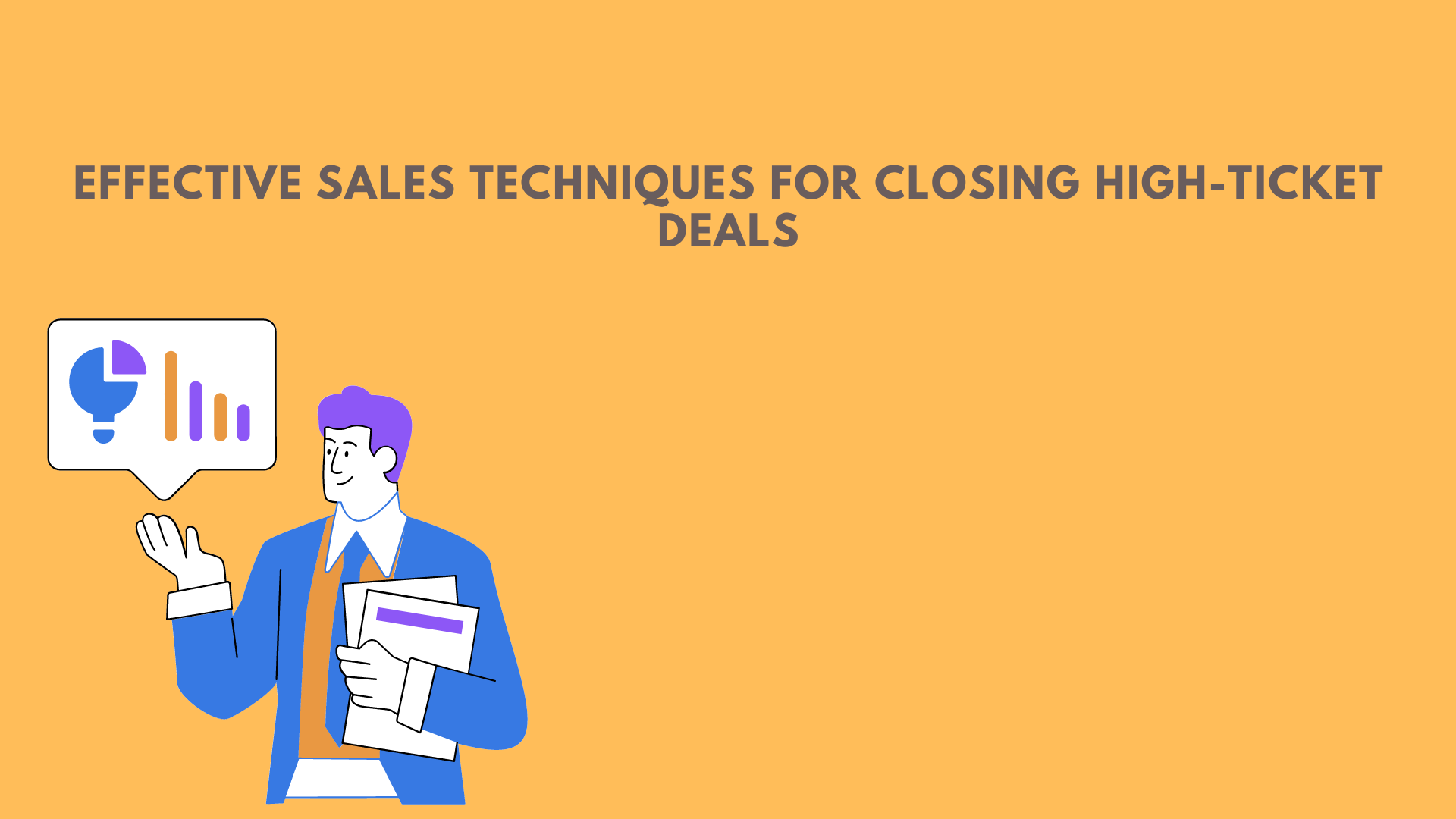In the world of sales, closing a high-ticket deal is often considered the pinnacle of success. These transactions, typically involving large sums of money, require a unique blend of strategy, psychology, and skill. Whether you’re selling luxury products, premium services, or high-value contracts, mastering the art of closing high-ticket deals can significantly impact your career and bottom line. Here’s how you can become more effective in closing those big deals.
- Understand Your Customer Deeply
High-ticket sales aren’t just about selling a product; they’re about solving a problem or fulfilling a deep-seated desire. To do this effectively, you must understand your customer inside and out. This means going beyond surface-level demographics and delving into their pain points, aspirations, and decision-making processes.
Research Thoroughly: Invest time in understanding your prospect’s business or personal needs. Look at their past purchases, current challenges, and future goals.
Build Empathy: Use this research to empathize with their situation. What keeps them up at night? What are their long-term objectives?
- Build Trust and Credibility
In high-ticket sales, trust is paramount. Your prospects need to feel confident not just in your product or service but also in you as a professional.
Leverage Social Proof: Share testimonials, case studies, and success stories from other high-ticket clients. This provides reassurance that others have successfully made the same investment.
Position Yourself as an Expert: Offer insights, advice, and knowledge freely. When you become a trusted advisor rather than just a salesperson, prospects are more likely to invest in what you’re offering.
- Craft a Compelling Value Proposition
Your value proposition should clearly articulate why your product or service is worth the high investment. It’s not just about features; it’s about the unique value your offering brings to the table.
Highlight ROI: Demonstrate the return on investment (ROI) your prospect can expect. Whether it’s increased revenue, time saved, or peace of mind, quantify the benefits.
Focus on Outcomes: Instead of dwelling on the product itself, emphasize the outcomes and transformations it will bring. How will their life or business improve after the purchase?
- Develop a Personalized Approach
High-ticket sales require a tailored approach. A one-size-fits-all strategy won’t work when the stakes are high.
Customize Your Pitch: Adapt your messaging to align with the specific needs and goals of your prospect. Personalization shows that you’ve done your homework and genuinely care about their success.
Use Active Listening: During conversations, listen more than you speak. This allows you to pick up on subtle cues and objections that you can address in real-time.
- Handle Objections with Confidence
Objections are inevitable in high-ticket sales, but they’re also opportunities to reinforce your value proposition.
Anticipate Objections: Prepare for common objections like price, timing, and uncertainty by developing strong counterpoints.
Address Concerns Directly: When objections arise, acknowledge them sincerely and provide clear, evidence-based responses. This reassures your prospect and demonstrates your expertise.
- Create a Sense of Urgency
While high-ticket deals often involve longer sales cycles, creating a sense of urgency can help expedite the decision-making process.
Leverage Limited-Time Offers: Offer special pricing, bonuses, or additional services for a limited time to encourage quicker decisions.
Emphasize Opportunity Cost: Highlight what the prospect stands to lose by not making a decision now, whether it’s missing out on a competitive advantage or continued inefficiencies.
- Close with Confidence
When it comes time to ask for the sale, do so with confidence and clarity.
Use Assumptive Closes: Frame the closing question as if the decision is already made. For example, “When would you like to get started?” instead of “Would you like to proceed?”
Be Ready to Walk Away: Confidence also means knowing when to walk away. If the deal isn’t right for both parties, it’s better to part ways respectfully rather than force a close.
- Follow Up Diligently
Even after the sale, the relationship isn’t over. Following up ensures client satisfaction and opens doors for future opportunities.
Ensure a Smooth Onboarding: Make sure the client experiences a seamless transition from sale to service. This reinforces their decision and reduces buyer’s remorse.
Stay in Touch: Keep the lines of communication open for additional support or future sales. High-ticket clients can often become repeat customers or refer others.
Conclusion
Closing high-ticket deals is both an art and a science. It requires a deep understanding of your customer, a compelling value proposition, and the confidence to handle objections and close the sale. By refining these skills, you can increase your success rate and build a reputation as a trusted advisor capable of delivering significant value.
Implement these techniques into your sales strategy, and watch your ability to close high-ticket deals soar.









